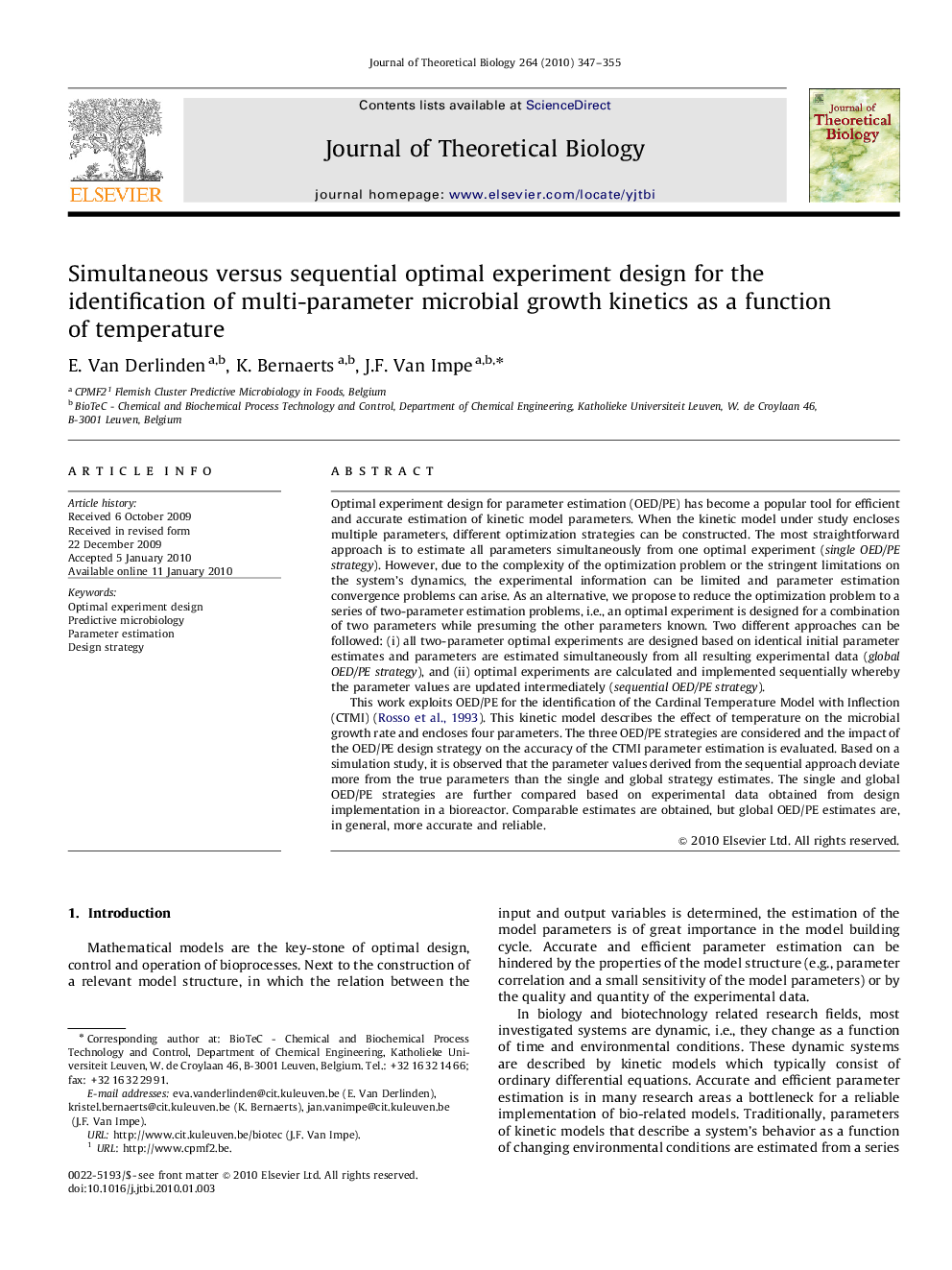| Article ID | Journal | Published Year | Pages | File Type |
|---|---|---|---|---|
| 4497639 | Journal of Theoretical Biology | 2010 | 9 Pages |
Optimal experiment design for parameter estimation (OED/PE) has become a popular tool for efficient and accurate estimation of kinetic model parameters. When the kinetic model under study encloses multiple parameters, different optimization strategies can be constructed. The most straightforward approach is to estimate all parameters simultaneously from one optimal experiment (single OED/PE strategy). However, due to the complexity of the optimization problem or the stringent limitations on the system's dynamics, the experimental information can be limited and parameter estimation convergence problems can arise. As an alternative, we propose to reduce the optimization problem to a series of two-parameter estimation problems, i.e., an optimal experiment is designed for a combination of two parameters while presuming the other parameters known. Two different approaches can be followed: (i) all two-parameter optimal experiments are designed based on identical initial parameter estimates and parameters are estimated simultaneously from all resulting experimental data (global OED/PE strategy), and (ii) optimal experiments are calculated and implemented sequentially whereby the parameter values are updated intermediately (sequential OED/PE strategy).This work exploits OED/PE for the identification of the Cardinal Temperature Model with Inflection (CTMI) (Rosso et al., 1993). This kinetic model describes the effect of temperature on the microbial growth rate and encloses four parameters. The three OED/PE strategies are considered and the impact of the OED/PE design strategy on the accuracy of the CTMI parameter estimation is evaluated. Based on a simulation study, it is observed that the parameter values derived from the sequential approach deviate more from the true parameters than the single and global strategy estimates. The single and global OED/PE strategies are further compared based on experimental data obtained from design implementation in a bioreactor. Comparable estimates are obtained, but global OED/PE estimates are, in general, more accurate and reliable.
